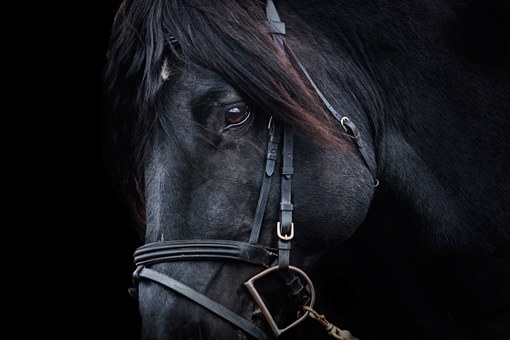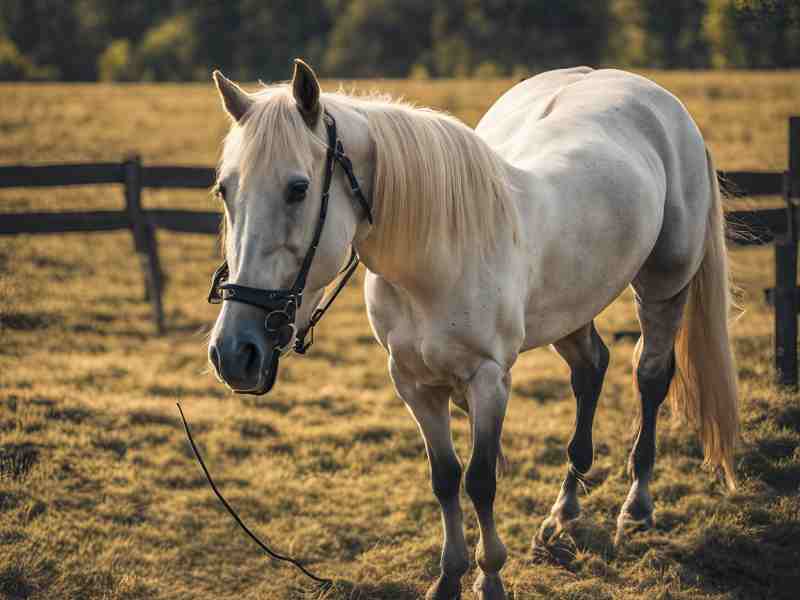Horses do not have the cognitive ability to understand the concept of death. They might show signs of distress or illness.
Horses are remarkable animals known for their intelligence and sensitivity. They form deep bonds with humans and other animals. Despite their perceptiveness, they do not comprehend death as humans do. Horses may exhibit behaviors indicating discomfort or illness when nearing the end of life.
Observing these signs helps caretakers make informed decisions about their well-being. Understanding their needs and providing appropriate care ensures that horses live comfortably and with dignity. Proper veterinary attention and a compassionate approach are essential in managing a horse’s health throughout its life.
The Bond Between Humans And Horses
Horses have been friends with humans for thousands of years. They helped in farming, traveling, and wars. This long history created a special bond. Horses and humans understood each other well. This friendship made horses trust humans deeply.
Horses can feel human emotions very strongly. They sense happiness, sadness, and fear. This emotional connection helps in building trust. Many horse owners feel that their horses understand them. The bond is so strong that horses often comfort their owners. These emotional ties make the relationship special.
Animal Instincts And Awareness
Horses have strong survival instincts. They can sense danger quickly. Their hearing and smell are very sharp. These senses help them avoid threats. Horses also read body language well. They can tell if another animal is scared or calm. This helps them stay safe.
Horses can sense changes in their environment. They notice new smells and sounds. This makes them alert. Horses often react fast to danger. They might run away or become very still. This helps them survive in the wild. Horses trust their instincts to stay safe.
Signs Of Equine Distress
Horses may show unusual behavior when they are in distress. They might isolate themselves from other horses. Eating less or not eating at all is common. They may also become lethargic and less responsive. Horses might show signs of anxiety or restlessness. Watch for changes in their usual routine and habits.
Physical symptoms can include weight loss and a dull coat. They may have labored breathing or increased heart rate. Check for signs of colic like rolling or kicking at their belly. Look for swelling or lameness in their limbs. Reduced mobility and stiffness are also important signs.
Scientific Studies On Animal Cognition
Studies show that animals have some level of self-awareness. Horses might sense their own health changes. Researchers observed horses’ behavior before death. Some horses showed signs of anxiety and distress. These behaviors suggest they might know something is wrong.
Experts have mixed views on this topic. Some believe horses can sense their own end. They point to changes in horses’ routines and habits. Other experts think these changes are just natural responses to illness. There is no clear answer yet. More research is needed to understand fully.
Comparative Analysis With Other Animals
Dogs often show signs before they die. They may hide or become less active. Cats also show changes in behavior. They may seek solitude or stop eating. Both animals seem to sense their end.
Elephants are known to leave their herd. They find a quiet place to die. Dolphins may strand themselves on beaches. This can be a sign they know their time is near. Birds often fly to a secluded spot. They prefer to die alone.

Credit: www.1011now.com
Veterinary Perspectives
Veterinarians often notice changes in horses’ behavior before they die. Horses may become withdrawn and lose interest in food. They might seek solitude or show signs of discomfort. These behaviors suggest that horses might sense their end.
Providing end-of-life care for horses is crucial. Veterinarians focus on keeping the horse comfortable. Pain management and a peaceful environment are essential. Families should spend quality time with their horse. This helps in making the horse feel loved.
Anecdotal Evidence From Horse Owners
Many horse owners share stories about their animals’ final moments. Some horses act differently before they pass away. They may become quieter and less active. These changes can be sudden or happen over time.
Owners often feel their horses know something is happening. They might find their horses seeking more comfort and attention. Some horses even seem to say goodbye in their own way. These personal stories can be very touching and emotional.
One common experience is a change in behavior. Horses might eat less or not at all. They could also separate themselves from the herd. This behavior is noticed by many owners.
Another common sign is a change in eyes. Horses might have a distant look, as if they are aware of their fate. These experiences are shared by many, making them widely accepted among horse owners.

Credit: www.primestables.co.uk
The Role Of Intuition And Empathy
People often believe that animals have a special sense. Many think horses can feel when they are about to die. This idea comes from observing horses’ behavior. Some horses become very calm before they pass away. Humans see this as a sign of the horse knowing its fate. These beliefs come from centuries of living with horses. But there is no solid proof yet. Still, many horse owners trust their animals’ feelings.
Horses and humans share a deep bond. This bond allows for strong communication. Horses often respond to human emotions. They sense sadness, fear, and joy. This connection makes people think horses understand more than we know. Some even think horses can predict their own death. This belief is mostly based on personal stories. Science has not confirmed this yet. But the idea continues to fascinate many.
Frequently Asked Questions
What Do Horses Do When They Are About To Die?
Horses often isolate themselves and become lethargic. They may stop eating and drinking. Breathing becomes labored. They often lie down more.
Do Horses Know When They Are Going To Be Put Down?
Horses do not understand the concept of being put down. They may sense changes in their environment or owner’s emotions.
Do Horses Get Sad When Another Horse Dies?
Yes, horses can get sad when another horse dies. They may show signs of grief and depression.
Do Horses Feel Pain When Euthanized?
Horses do not feel pain when euthanized. Vets use a painless injection to ensure a peaceful and humane process.
Conclusion
While we may never fully understand if horses know when they are going to die, signs suggest awareness. Observing their behavior and providing comfort can ease their final moments. Respect and empathy towards these majestic creatures are crucial. This understanding deepens our bond and ensures better end-of-life care for our equine friends.






